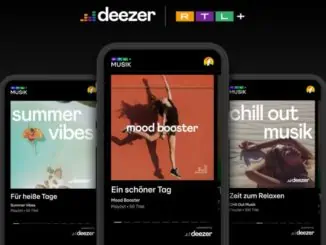
Paid for music listening is increasing in Germany with users increasingly willing to pay for both live and recorded music according to a recent long-term study, Music Usage in Germany. According to the study respondents are willing to spend more money on a physical album (+4%) or a digital album (+12%) of an artist than a year ago. The appreciation of live concerts has also increased (+9%) and this is especially true for people with musical background who have an above-average willingness to pay in all areas. They also consume less mainstream music and actively seek new music more frequently.
The use of paid music streaming services has now increased to 26% and ownership of smart speakers (+4 %) has also increased. 14% of respondents have a smart speaker with the vast majority (83%) of them using them to listen to music. Mobile music listening is on the increase with home listening on HiFi systems down by 5%.
The study is a joint exercise between the University of Hamburg and leading German music industry associations will run for three years and the findings for the first year were published in September 2018. This year’s survey results were presented as part of the Hamburg 2019 Music Dialogue (Musikdialog) and contain data for the year ending July 2019. The objective of the study is to find out how music is discovered, bought and consumed in Germany currently and likely trends for the future.
The report is based on a representative sample of 2,514 people aged between 16 and 70 living in Germany who were interviewed about their music usage, search and purchasing behaviour. The questionnaire includes questions about the use of music streaming, music listening behaviour, active and passive music consumption, music searching behaviour (how and where to discover new music), music buying behaviour, willingness to pay, use of and attitude to live music events (concerts, festivals and clubs). Respondents were also asked about influencing factors such as artists, texts, sound quality, attitude to music videos, use of playlists, value and enjoyment of music, taste in music, musical education, technical equipment, as well as sociodemographic status..
Dr. med. Peter Tschentscher, First Mayor of the Free and Hanseatic City of Hamburg, said, “Hamburg has a long tradition as a music city and we want to discuss the latest trends and developments in the music industry with the music dialogue. The results of the music study presented at the Musikdialog are encouraging, showing that more and more users are enjoying and valuing recorded and live music and forms an important basis for the future of music in Hamburg.”
The complete report (in German) can be downloaded here.




